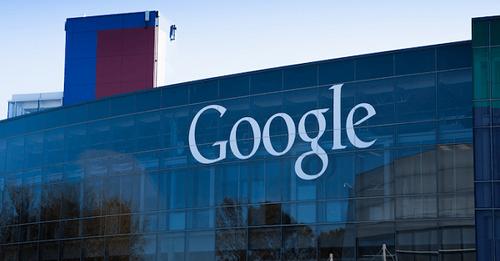World
U.S. Government Considers Breaking Up Google Over Antitrust Concerns

The U.S. government is exploring the possibility of breaking up tech giant Google, citing antitrust concerns and the company’s dominance in search and online advertising, as regulators push for increased competition in the digital market.
The US Department of Justice (DOJ) has indicated that it might propose breaking up Google’s de facto monopoly by dividing its search business from the Android operating system, Chrome web browser, and Google Play app store.
A court filing on Tuesday indicated that Google may be subject to both “behavioral and structural remedies” to prevent it from exploiting its ecosystem for an unfair competitive edge. The DOJ contends that the tech giant’s actions have already inflicted “interlocking and pernicious harms” on users, emphasizing the need to restore competition in the search engine market.
The DOJ claimed that Google’s illegal actions have allowed it to gather and utilize data, disadvantaging its competitors. Consequently, the plaintiffs are contemplating measures that would prevent Google from using or keeping data which cannot be effectively shared with others due to privacy issues. They emphasized the need to differentiate between “genuine privacy concerns” and “pretextual arguments,” used by Google to maintain its dominant stance in the market.
This decision comes after a federal judge ruled in August that Google had breached US antitrust laws.
“Judge Amit Mehta stated that Google is a monopolist and has behaved like one to preserve its monopoly, pointing out that the company spent billions of dollars paying device manufacturers to ensure it remains the default search engine on smartphones and browsers.”
The DOJ argues that since Google has violated antitrust regulations, appropriate remedies should “liberate markets from Google’s exclusionary behavior, eliminate obstacles to competition, deny Google the benefits of its legal violations, and prevent future monopolization by Google in these and related markets.”
READ ALSO: Google to remove unused Gmail accounts beginning Dec 1
Google responded by labeling the government’s plan as “radical,” arguing in a blog post on Wednesday that it would deteriorate customer experience and significantly affect “American competitiveness.”
“Separating Chrome or Android would be detrimental,” Google remarked. “Billions of people access the internet through Chrome and Android because they are free products. Very few companies could maintain them as open-source projects or invest in their development with the same commitment that we do.”
The case is set to develop further in the next few months, as the DOJ plans to present more detailed proposals by November 20, followed by Google’s response on December 20.
The consequences that Google and its parent company, Alphabet, might face are still uncertain. Back in the 1990s, the US government tried to dismantle Microsoft due to its dominance in the emerging software market. However, Microsoft appealed this ruling and ultimately led to the Department of Justice dropping the case.
Google is embroiled in a distinct antitrust case initiated by DOJ attorneys and 17 states, claiming that its advertising practices are anti-competitive. Moreover, the company has faced multi-billion euro fines for monopoly-related issues within the EU. Other tech giants like Meta Platforms (Facebook’s parent company), Amazon, and Apple have similarly been targeted with lawsuits from federal antitrust regulators for allegedly maintaining illegal monopolies.
